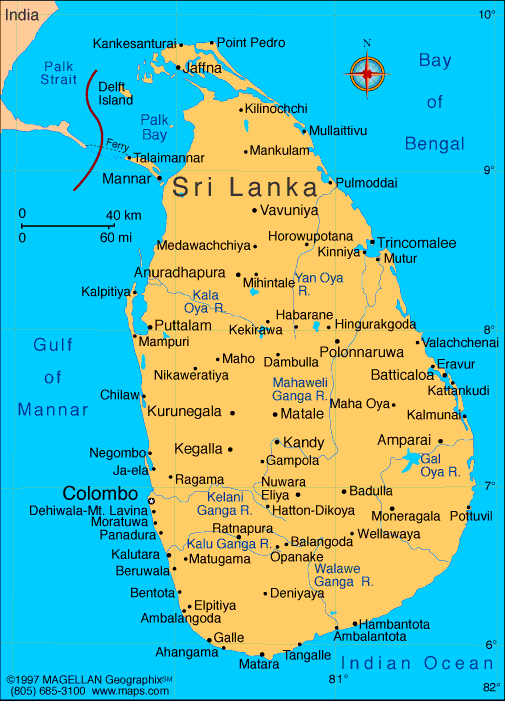 A Sri Lankan presidential commission will be appointed to investigate a mass grave where more than 150 skulls and bones, most likely of Marxist rebels killed decades ago, were found last year, a government spokesman said Monday.
A Sri Lankan presidential commission will be appointed to investigate a mass grave where more than 150 skulls and bones, most likely of Marxist rebels killed decades ago, were found last year, a government spokesman said Monday.President Mahinda Rajapaksa had decided to appoint the commission to investigate into the mass grave found at a state-run hospital in the central region of the country, said Lakshman Hulugalle, head of the government's Media Centre for National Security.
He told reporters the commission's probe will be in addition to an ongoing police investigation, adding names of the members of the commission will be announced soon.
Workers found the remains while doing construction last December at the hospital in Matale, about 105 kilometers (65 miles), northeast of the capital, Colombo. The skeletons were found buried in neat rows, five or six stacked on top of one another, totaling 154 bodies.
Last month, a judge declared the mass grave a crime scene, and said the skulls and bones recovered date back 25 years, strengthening suspicions that they belonged to suspected Marxist rebels killed at the time.
Magistrate Chathurika de Silva told a court in Matale that tests carried out by archeological and judicial medical officials showed the remains dated to between 1987 and 1990. During that period, thousands of men and women suspected of having ties to the rebels disappeared after being arrested by security forces.
When the bodies were found, there were initial claims that they belonged to those killed in an epidemic in the 1940s or in a mudslide. However, hospital authorities did not have any records of bodies buried on the premises.
A Marxist group, the People's Liberation Front, which led two uprisings first in 1971 and again in 1987 to 1989 against the government, said the bodies may belong to its members killed by security forces and demanded that the government to conduct a full investigation.
The Marxists were mostly rural Sinhalese, the country's majority ethnic community. They complained of economic disparities and said that rural people were denied equal opportunities.
No comments:
Post a Comment